News
Apeel Sciences on track to save 20 million pieces of fruit from food waste
9 Jun 2020At the end of May, Apeel Sciences raised $250 million dollars in new financing, bringing the startup’s total funding to more than $1 billion. This infusion of funds will be put toward the company’s mission of food waste prevention, an area in which it has already made significant progress. Apeel estimated that it will save 20 million pieces of fruit from being wasted in retail and will also be able to extend the total shelf life of produce in the home, where food waste is three times higher.
“Food waste is an invisible tax imposed on everyone that participates in the food system. Eliminating global food waste can free up $2.6 trillion annually, allowing us to make the food ecosystem better for growers, distributors, retailers, consumers and our planet,” said James Rogers, founder and chief executive officer of Apeel in a statement.

The company also stated that this funding will be focused on aiding farmers and communities which are at greater risk for food insecurity, such as sub-Saharan Africa, Central and South America. At the same time, the company’s supermarket clients in the United States and Europe continue to play a large role in the increasing popularity of this solution. Large grocers in the United States, Germany and Denmark are already widely using the technology. Asda in the UK will follow suit later this year, reported The Guardian.
This latest funding round for Apeel was led by GIC with additional participation from Viking Global Investors, Upfront Ventures, Tao Capital Partners and Rock Creek Group, as well as celebrity investors Oprah Winfrey and Katy Perry.
Apeel has created a barrier for fruit skin which can be applied in a spray-on application to triple the shelf life of many products without the need for refrigeration. Most notably, this additional preservation layer is invisible. It is colorless, tasteless and does not leave a detectable greasy residue behind.
The company's efforts began with a focus on avocados and has since expanded to citrus fruits and apples with vegetables like asparagus and cucumber next in line. Apeel's novel approach to combatting food waste is also a financially intriguing one for retailers. The company estimated that U.S. supermarkets using its technology have seen a 50% reduction in unsold produce as well as a 5% to 10% increase in sales.
Food waste is a growing concern for consumers worldwide. With the world population expected to top 10 billion by 2015, the need to increase food is a pressing one. But population growth also throws into stark relief the tendency for generating food waste in many countries. Despite a need for more food, The Guardian reported that nearly 1.3 billion tons or a third of all the food produced around the globe is wasted annually. This quantity of waste translates to one in nine people going hungry around the globe every day, according to data collected between 2016 and 2018 from the Food Aid Foundation.
Not only is wasted food a growing concern for consumers – a Mattson survey from 2019 found 74% of consumers saw food waste as an extremely big issue – but its reduction is also potentially a source of increased revenue for retailers. Nielsen found that two-thirds of customers are willing to pay more for sustainable brands, and lessening food waste is certainly a sustainable practice.
Related news
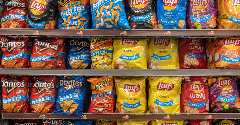
PepsiCo formulates ‘naked’ Cheetos and Doritos products
31 Dec 2025
US food giant PepsiCo has launched its Simply NKD range, a move it says reimagines its popular products with new formulations free from artificial flavours, dyes, and colours.
Read more
Debate over ban on ‘meaty’ names for plant-based products reaches stalemate
26 Dec 2025
The debate over a ban on plant-based products using “meaty” terms has reached a stalemate, leaving manufacturers in limbo and still facing overhauls to their marketing and packaging.
Read more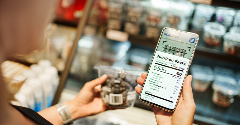
Has ‘clean’ had its day?
22 Dec 2025
Wielding clean-label positioning and fortification as marketing levers is a dangerous strategy, and brands would be better off explaining the hows and whys of the ingredients in their products, say experts.
Read more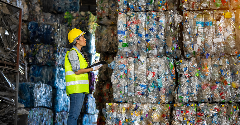
Pioneers of circular plastic packaging push for new policies
18 Dec 2025
Some of the world’s largest food and drink companies have grown frustrated at investing in circular packaging systems, as the majority “wait on the sidelines”.
Read more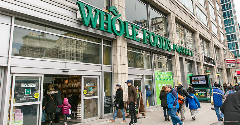
Whole Foods Market forecasts fibre frenzy for 2026
11 Dec 2025
Whole Foods Market has released its top 2026 trends, predicting that a fibre frenzy will take place next year as health-conscious consumers seek out nutritious, filling options.
Read more
Sorghum emerges as better-for-you hero ingredient
9 Dec 2025
With the launch of Novak Djokovic’s sorghum-based brand, the grain’s popularity in the better-for-you snacking sphere is on the rise, thanks to its nutritional and sensory properties.
Read more
Innovation promise in 'maturing' plant-based dairy alternatives market
8 Dec 2025
Plant-based dairy is a maturing market that still faces significant hurdles around taste, functionality, nutrition, and price, but industry is innovating fast, according to experts speaking at Fi Europe.
Read more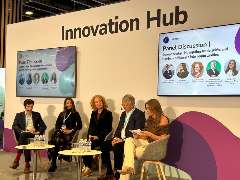
Turning global trade challenges into opportunities
4 Dec 2025
While our food innovation ecosystem is in a healthy place, certain barriers persist. A panel of experts at Fi Europe shared their ideas and strategies for overcoming these, to fully unleash Europe’s potential.
Read more
Celebrating the winners of the Fi Europe Innovation Awards 2025
3 Dec 2025
Food industry stakeholders celebrated as the winners of the Fi Europe Innovation Awards were announced at a ceremony in Paris.
Read more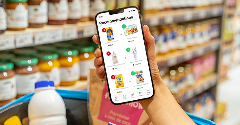
Yuka’s food scanning app helps consumers make healthier choices
2 Dec 2025
Global food scanning app Yuka helps consumers understand the content of their shopping baskets and shapes producers’ reformulation plans.
Read more